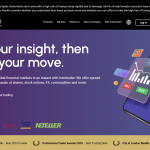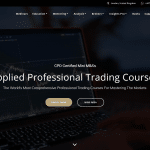A forex broker is a licensed financial intermediary that provides access to the foreign exchange (FX) market, enabling individuals, businesses, and institutions to buy and sell currencies. Forex brokers operate trading platforms that connect retail traders to global liquidity providers such as banks, hedge funds, and institutional market participants.
This article explains who a forex broker is, how they work, and what services they offer in 2025.
Definition of a forex broker
A forex broker is a company or individual authorised to facilitate currency trades by offering real-time pricing, execution, leverage, and access to trading platforms like MetaTrader 4, MetaTrader 5, or cTrader.
They act as a bridge between the trader and the interbank market, allowing retail and professional clients to speculate on currency price movements.
What does a forex broker do?
1. Provides market access
- Offers trading in major, minor, and exotic currency pairs
- Enables clients to trade 24/5 during global market hours
- Aggregates pricing from liquidity providers for execution
2. Supplies trading platforms
- Offers desktop, web, and mobile platforms
- Platforms include charting tools, technical indicators, and order management
- Supports manual trading, Expert Advisors (EAs), and algorithmic systems
3. Facilitates funding and account management
- Manages client deposits and withdrawals
- Offers multi-currency accounts and regional payment methods
- Maintains segregated client funds under regulatory rules
4. Offers leverage and margin trading
- Provides clients with leverage (e.g. 1:30 to 1:2000) to control larger positions
- Calculates margin requirements and monitors account risk
5. Executes trades
- Processes buy/sell orders either internally (market maker) or externally (ECN/STP)
- Offers features like instant execution, market depth, and pending orders
6. Provides support and education
- Offers multilingual customer service
- Publishes market analysis, economic calendars, and educational tools
- Hosts webinars and strategy courses
Types of forex brokers
| Broker Type | Description | Typical Clients |
|---|---|---|
| Market Maker | Internal execution, wider spreads, fixed pricing | Beginners, small accounts |
| STP Broker | Direct routing to liquidity providers, variable spread | Active retail traders |
| ECN Broker | Access to deep liquidity pool, raw spreads + commission | Institutional and pro traders |
| Hybrid Broker | Offers multiple account types with varying models | Versatile client base |
Regulation and oversight
Reputable brokers are licensed by financial authorities to ensure transparency, fund safety, and fair practices.
Major regulators include:
- FCA – Financial Conduct Authority (UK)
- ASIC – Australian Securities and Investments Commission
- CySEC – Cyprus Securities and Exchange Commission
- FSCA – Financial Sector Conduct Authority (South Africa)
- DFSA – Dubai Financial Services Authority
Key characteristics of a good forex broker
- Regulated by a recognised authority
- Transparent pricing and execution policies
- Competitive spreads and commissions
- Supports MT4/MT5 or professional platforms
- Offers swap-free accounts where required
- Fast and secure deposit/withdrawal methods
- Responsive customer support in multiple languages
Key takeaways
- A forex broker is a licensed entity that enables traders to access global currency markets
- They offer execution, leverage, funding, platforms, and analytics
- Brokers earn money via spreads, commissions, and swap fees
- Traders should choose a broker based on regulation, platform features, and cost
- Always verify a broker’s licence number and reputation before trading
Frequently Asked Questions
What is the role of a forex broker?
A forex broker connects traders to the market, executes trades, offers platforms, and provides access to leverage and account funding.
Are forex brokers regulated?
Yes, reputable forex brokers are regulated by financial authorities like FCA, ASIC, or CySEC to ensure client protection.
Can I trade without a broker?
No. You need a broker to access the forex market through a trading platform and liquidity sources.
How do forex brokers make money?
They earn through spreads, commissions, and overnight swap fees. Some also earn from partner and affiliate programs.
What’s the difference between ECN and Market Maker brokers?
ECN brokers offer raw spreads and route trades to the market, while Market Makers fill trades internally with fixed or wider spreads.




Leave a Reply
Please log in or register to share your thoughts.